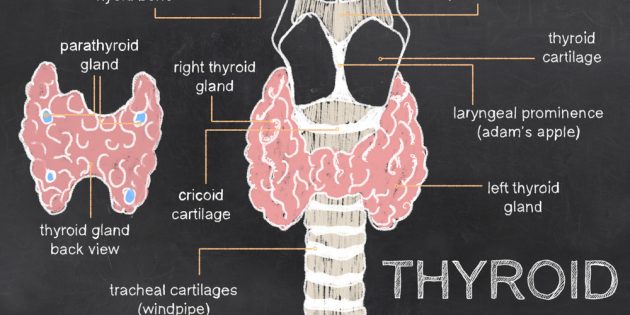Greenville SC Thyroid Doctor Explains the Function of The Thyroid
When it comes to the topic of the thyroid, a lot of people are confused about what it does, how it works and what it’s responsible for. Even individuals who suffer from thyroid-related health issues, such as hypothyroidism and hyperthyroidism, are in the dark about the role this gland plays in their overall health. If you want more of an understanding, then the following information may help. Even if you know a little about the thyroid, this information is worth looking at.
What is the Thyroid?
Starting with the basics, the thyroid is a small gland that’s located on the front of the neck just under the Adam’s apple area. It’s shaped similar to a butterfly and has two lobes that are connected by a narrow middle bridge.
How Does it Work?
As a part of the endocrine system, the main job of the thyroid is to release hormones T3 and T4 into the bloodstream so the cells in the body can use them to function. Iodine from the foods you eat daily is used to create these hormones, which is why it’s important to eat foods such as kelp, strawberries, and organic yogurt.
How does the thyroid know how much of each hormone needs to be released? It begins with the hypothalamus, which releases something called the TSH Releasing Hormone. This tells the pituitary that it needs to signal to the thyroid gland that an increase or decrease of T3 and T4 are needed. It does this by increasing or decreasing the amount of Thyroid Stimulated Hormone (TSH) it releases.
If levels of thyroid hormones are low, then the pituitary gland will release more TSH. This tells the thyroid that it needs to produce more T3 and T4. If thyroid hormone levels are too high, then the pituitary gland will release less TSH. This will tell the thyroid to slow down the production of T3 and T4.
What Does the Thyroid Do?
Now that you know how the thyroid works, you might be wondering why T3 and T4 are so important for your overall health. These hormones are critical because they regulate everything from your metabolism to your heart rate. They go to almost every single cell in your body and can impact how you feel if they are out of balance. For example, too much T3 and T4, which is also known as hypothyroidism, can leave you feeling anxious, irritable, sweaty, and shaky. Too little T3 and T4, known as hypothyroidism, can leave you feeling fatigued, sensitive to cold, tired, and with pain in your joints.
How Should You Address Thyroid Issues?
If you ever feel like your thyroid isn’t in good health, don’t ignore it. If there’s an imbalance or any other issue impacting your thyroid, it’s important to address it as soon as possible. For the most comprehensive help possible, go straight to a functional wellness practitioner. They’ll provide you with the most in-depth thyroid care to ensure the health of this important gland is being made a priority.




